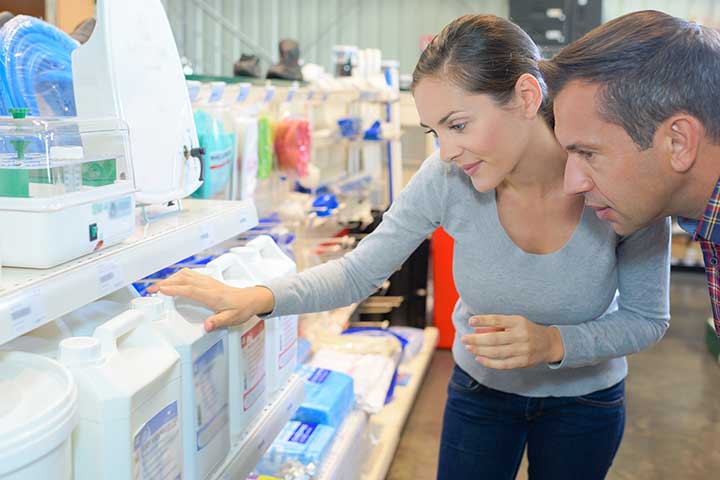
Understanding pool chemicals can be complicated. There are many different types that play important roles in keeping your pool clean and safe to swim in. At Champions Pool Repair & Services, we know that pool chemicals are an essential part of pool maintenance, so we’ve laid out your guide to understanding common pool chemicals and what they do for your pool:
Most pool owners use chlorine to keep their water clean. This chemical kills both bacteria and algae that can build up in your pool. There are a few options for pool owners to add chlorine into their pool, like chlorine tablets, powdered chlorine, and salt chlorine generators that can transform everyday table salt into chlorine. While chlorine tablets are the most popular method to add chlorine to your water, be sure to check with a Spring, Texas, pool technician to determine which method is best for your pool’s needs.
Almost anything can alter the pH level in your pool, from rainwater to people entering and exiting your pool. Because pH levels can easily become unstable, it’s important to regularly check your pool’s pH balance. Low pH levels make your water acidic and cause skin irritation, while high pH levels make your water too alkaline and can cause scaling to form on your pool equipment. A pool expert will be able to test the pH levels in your pool to ensure your water is properly balanced.
As the word implies, algicide is chemical used to control the amount of algae build up in your pool. While not as effective as chlorine, algaecide is a good option if your chlorine levels become low and you are unable to add chlorine to your water in time. It’s a good idea to keep some algaecide on-hand to add to your pool until you are able to raise your pool’s chlorine levels back to the appropriate amount.
For those with plaster pools, calcium hardness levels are extremely important. When there is not enough calcium in your pool, the water can eat away at the plaster and lead to costly repairs. Calcium hardness helps protect your pool’s walls and equipment. While you typically only need to add calcium hardness to your pool at the beginning of swimming season, it’s important to keep an eye on the calcium level, as too much can lead to problematic scaling.
Understanding the chemicals that go into your pool is essential to keep your pool healthy and sparkling. For professional pool services and supplies, give the pool experts at Champions Pool Repair & Service a call at (281) 355-8504.
